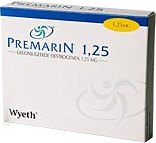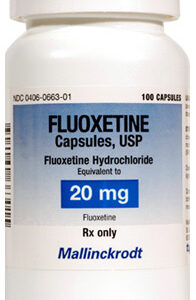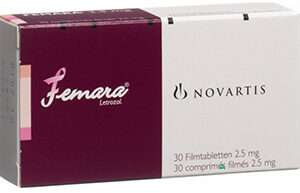Medication Overview
Premarin is a medication widely utilized for hormone replacement therapy (HRT). It is designed to supply estrogen to the body when the ovaries produce less of this vital hormone, or none at all, alleviating various symptoms associated with estrogen deficiency. Primarily used by postmenopausal women, Premarin helps in addressing conditions such as hot flashes, vaginal dryness, and osteoporosis prevention.
Active Ingredients
The main constituents of Premarin are conjugated estrogens, which are a blend of several different types of estrogen salts. It’s derived from the urine of pregnant mares, hence the name ‘Premarin’ (Pregnant Mares’ Urine). The combination of estrogen compounds is what makes this medication particularly effective in mimicking the natural hormones in the body.
Indications and Uses
Premarin is indicated for several conditions. It helps manage moderate to severe menopausal symptoms, such as hot flashes, night sweats, and vaginal discomfort. Furthermore, it’s employed in the prevention of postmenopausal osteoporosis by maintaining bone density. In specific scenarios, Premarin is prescribed for estrogen replacement in ovarian failure or other conditions causing a deficiency of endogenous estrogen. It has applications in palliative treatment of certain breast and prostate cancers as well.
Dosage and Administration
The dosage of Premarin is individualized based on the patient’s needs and treatment goals. It’s administered orally with a typical initiation dose adjusted over time by a healthcare provider. For managing menopausal symptoms or osteoporosis prevention, it’s often administered cyclically or continuously, depending on the regimen that suits the patient’s clinical response and side effect profile. It’s vital to utilize the lowest effective dose for symptom control to minimize associated risks.
Contraindications
Premarin should not be taken by individuals with known hypersensitivity to its components, nor should it be used by those with a history of venous or arterial thromboembolic diseases (such as deep vein thrombosis or stroke), undiagnosed abnormal genital bleeding, liver dysfunction, known or suspected breast cancer, estrogen-dependent neoplasia, or in individuals who are pregnant due to the potential harm to the fetus.
Precautions and Warnings
Caution is advised when taking Premarin. It can augment the risk of several conditions, including cardiovascular disorders, probable dementia for women age 65 and up, and an increased chance of developing endometrial and breast cancers. Patients with hypertension, liver disorders, diabetes, gallbladder disease, thyroid problems, or a history of hormone-dependent tumors require careful monitoring. It should be discontinued if a contraindicated condition arises or pregnancy occurs.
Drug Interactions
Premarin can interact with various medications, influencing their effects or increasing risks of adverse reactions. Some anticoagulants, certain anticonvulsants, and herbal supplements like St. John’s Wort may have interactions that necessitate dose adjustments or vigilant monitoring. Always inform healthcare providers of all medications, including over-the-counter drugs and supplements, when using Premarin.
Adverse Reactions
While Premarin is an effective treatment, it can cause side effects. Common reactions include headache, breast tenderness, irregular vaginal bleeding or spotting, stomach/abdominal cramps, bloating, nausea, and hair loss. More severe issues may include gallbladder disease, blood clots, and elevated blood pressure. Immediate attention should be sought if severe side effects or signs of allergic reactions occur.
Overdose and Emergency Procedures
In the event of overdose, symptoms such as nausea, vomiting, withdrawal bleeding, and breast tenderness may manifest. Emergency medical attention is necessary if overdose is suspected. Supportive care will be given in a medical facility, with vital function monitoring and necessary treatment interventions provided.
Storage and Handling
Premarin must be stored at room temperature, between 15°C to 30°C (59°F to 86°F). Keep the container tightly closed and out of reach of children and pets. Avoid storing the medication in areas with excessive heat, moisture, or direct sunlight to maintain effectiveness.
Frequently Asked Questions
Can Premarin prevent osteoporosis?
Yes, Premarin can help prevent bone loss and reduce the risk of fractures but should be considered only when other non-estrogen medications are not suitable.
How quickly does Premarin work?
Symptomatic relief can vary, with some patients experiencing an improvement in symptoms within a few weeks, while for others, it may take a longer period for the full benefits to manifest.
Patient Counseling Information
When prescribed Premarin, patients should understand the purpose of the medication, how to take it correctly, and the importance of adhering to the prescribed dosage. They should be informed about possible side effects, when to seek medical attention, and the necessity of routine medical check-ups to assess the therapy’s efficacy and safety.
Important Safety Information
Premarin is not suitable for everyone. A thorough assessment of personal and family medical history will be performed to discern suitability. The medication carries risks which may outweigh benefits in certain cases, making careful consideration and regular provider consultations critical.
Medication Guide for Premarin
Always follow the healthcare provider’s instructions when taking Premarin. Don’t hesitate to ask any queries regarding its use or to report any unexpected health changes. As a regulatory compliant medication, the accompanying guide must be read carefully to ensure safe and effective use of the drug.





Reviews
There are no reviews yet.